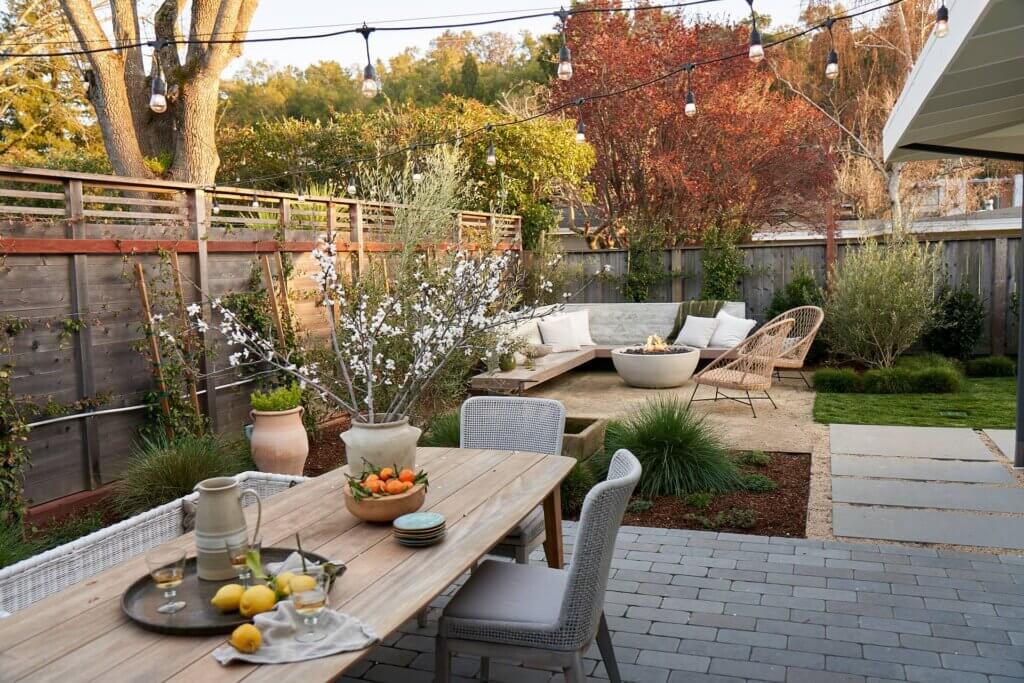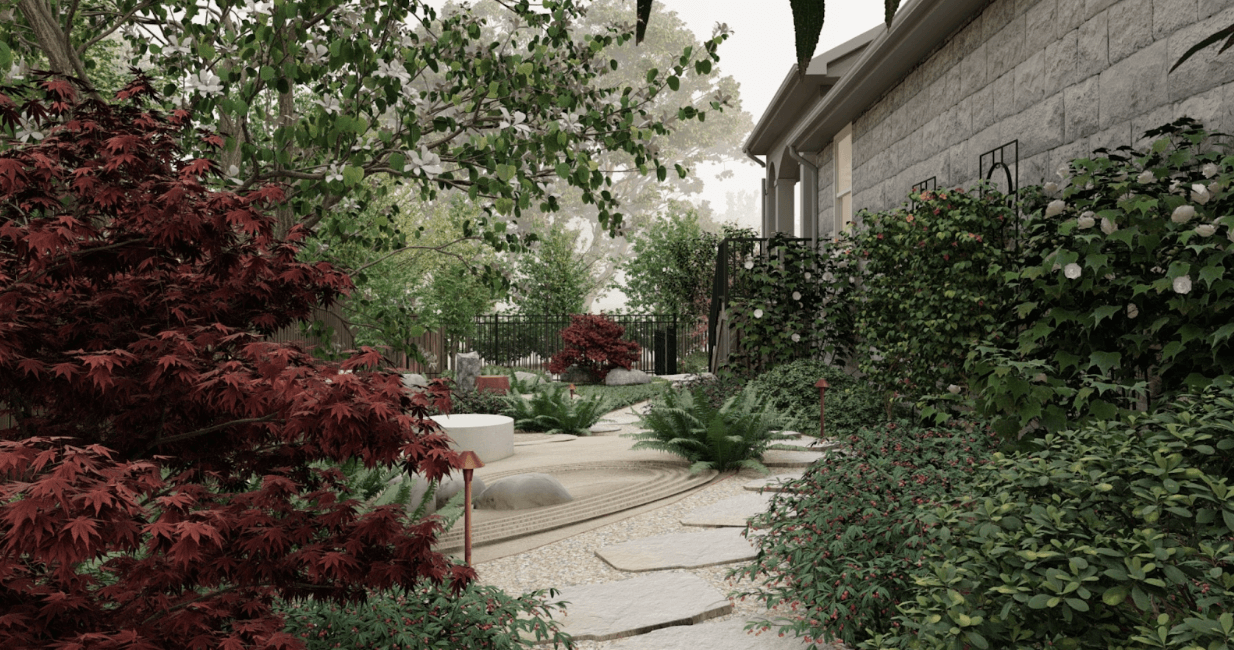
In a world filled with distractions and – let’s face it, stress – the allure of Zen gardens lies in their ability to offer a sanctuary in your own yard. With their timeless design, these spaces allow us to slow down, get centered and be present. Let’s delve into these enchanting spaces, explore their history, design principles, and the profound impact they can have on our well-being. As you read through and learn more about Zen Gardens, remember that Yardzen is here to help you with actualizing your Zen Garden idea or any outdoor project you may have. Learn more about our fully customizable design packages here.
Understanding Zen Gardens
Zen gardens, also known as Japanese rock gardens or dry landscape gardens, originated in Japan during the Muromachi period (14th-16th centuries). Rooted in Zen Buddhism, these gardens were created as places for meditation and contemplation.
Design Elements of Zen Gardens
At the heart of every Zen garden lies a harmonious blend of natural elements meticulously arranged to create a serene landscape. Here are the key components:
Rocks (Ishi): Central to the design, rocks symbolize islands or mountains rising from the sea of gravel or sand. They are carefully selected and placed to evoke a sense of balance and harmony.
Gravel or Sand (Suna): One of the more recognizable elements of Zen gardens. Often raked into patterns resembling waves or ripples, gravel or sand represents water. Its minimalist presence encourages focus and contemplation.
Plants (Shokobutsu): Sparse foliage, such as moss, pruned trees, or small shrubs, are strategically placed to add texture and contrast to the composition. These plants are selected for their ability to thrive in the garden’s austere environment. For more guidance and the specific types of plants typically found in traditional Zen garden, read Botanical Harmony: Exploring the Flora of Zen Gardens.
Bridges and Pathways: Designed to guide visitors through the garden, pathways and bridges encourage mindful exploration while reinforcing the concept of journey and transition.
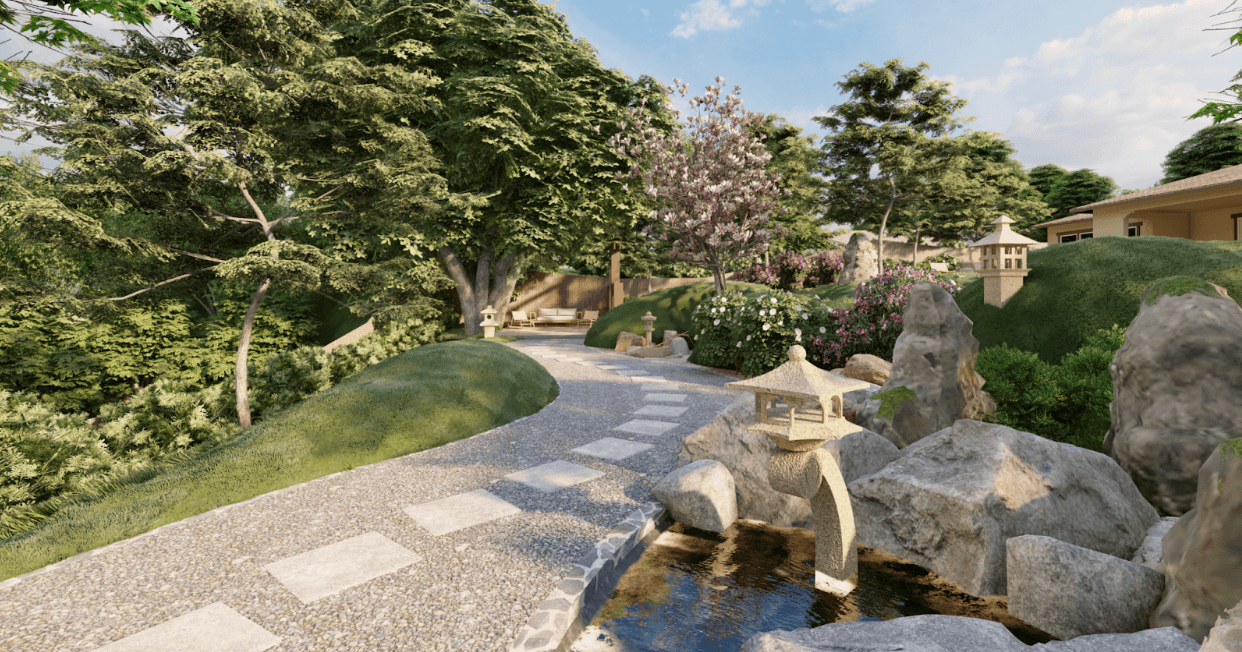
Benefits of Zen Gardens
Stress Reduction: The minimalist design and tranquil ambiance of Zen gardens promote relaxation and stress relief.
Mindfulness: Engaging with the simplicity of Zen gardens encourages present-moment awareness, fostering a deeper sense of mindfulness.
Creativity and Focus: By providing a space free from distractions, Zen gardens stimulate creativity and enhance cognitive focus.
Connection with Nature: Despite their controlled environment, Zen gardens evoke a profound connection with nature, reminding us of the beauty and impermanence of life.
Top 4 ideas for creating your own Zen garden
1: Play with asymmetry
One of the main principles of Zen gardens is asymmetry, known as Fukinsei in Japanese. Intentionally offset pavers or outdoor flooring to find perfection in imperfection.
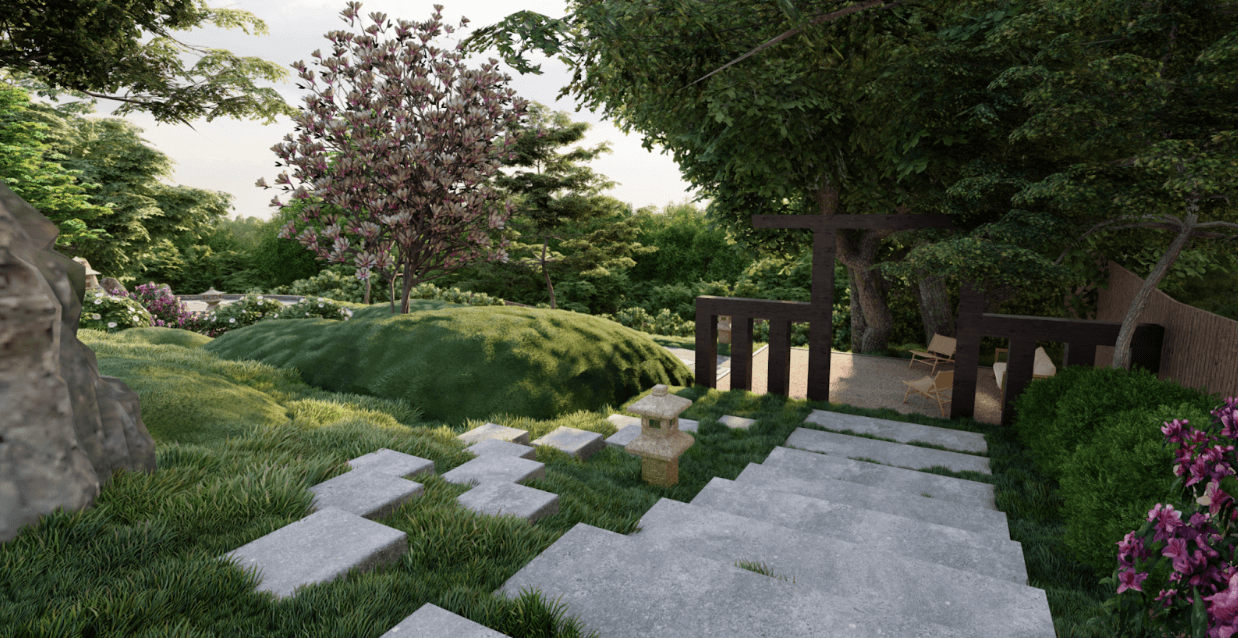
2: Incorporate a water feature
Many Zen gardens include water – whether small ponds or streams or something more delicate like this feature. The flow of water evokes a sense of tranquility and harmony with nature.
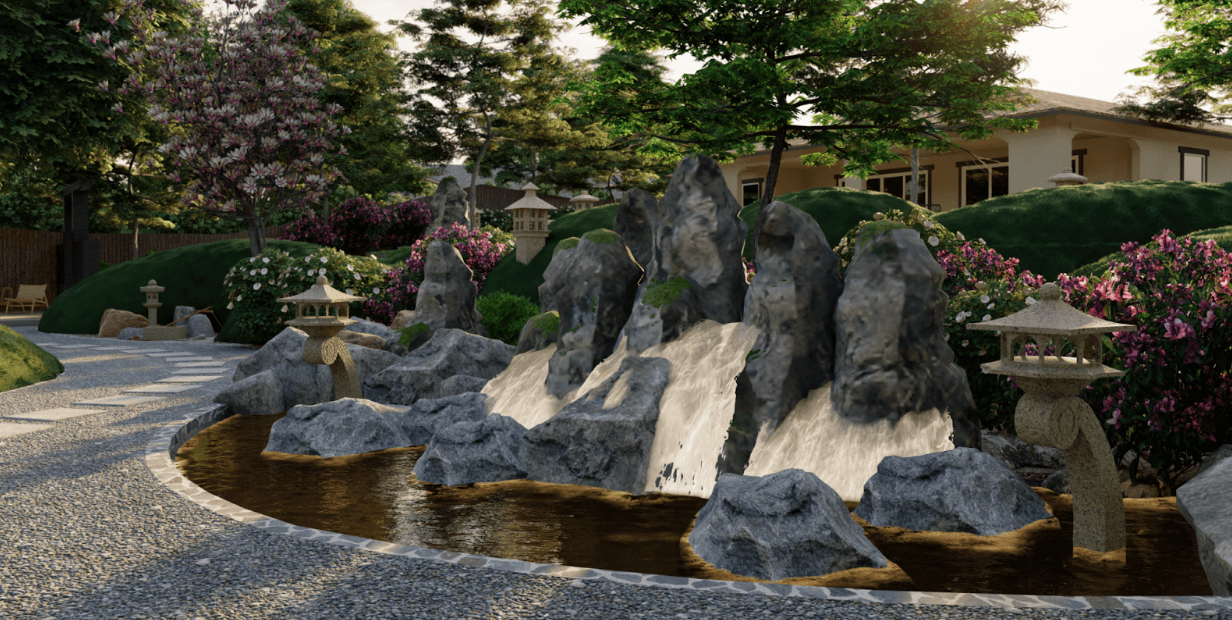
3: Focus on simplicity
Zen gardens are simple and uncomplicated, where the magic is the interplay of natural elements, meticulously arranged.
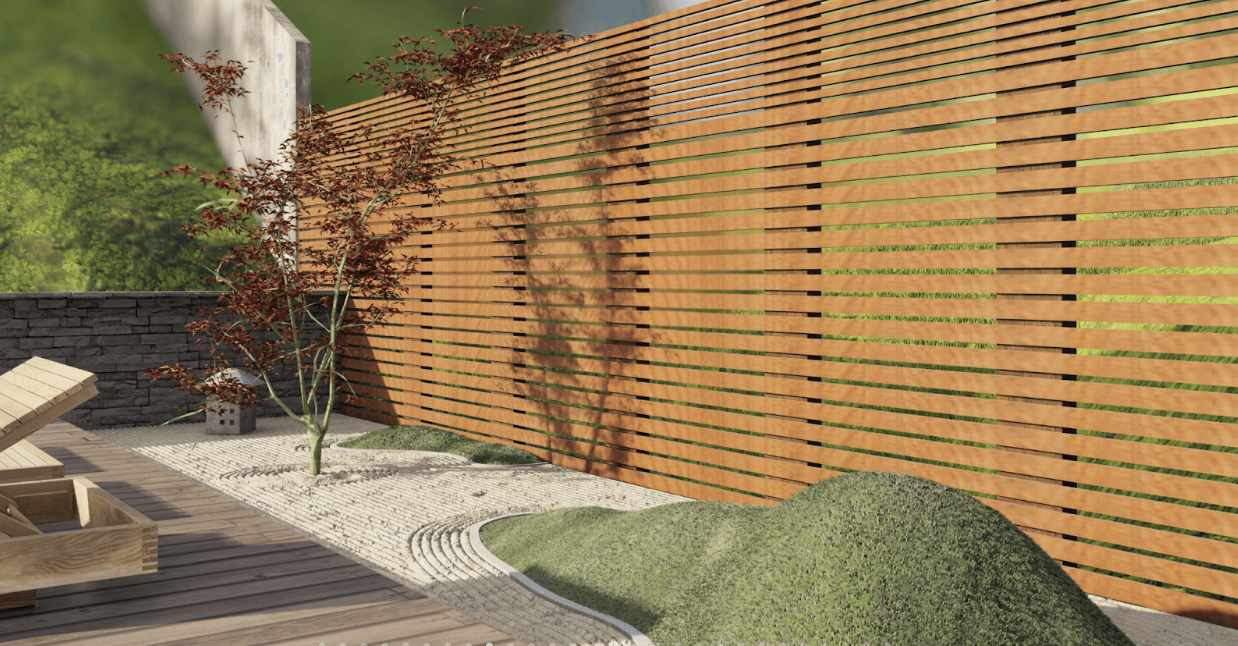
4: Create the perfect place for reflection
Add seating that provides a place for pause and reflection. Consider the vantage point and ensure it’s calming, and not distracted by any activity in your home.
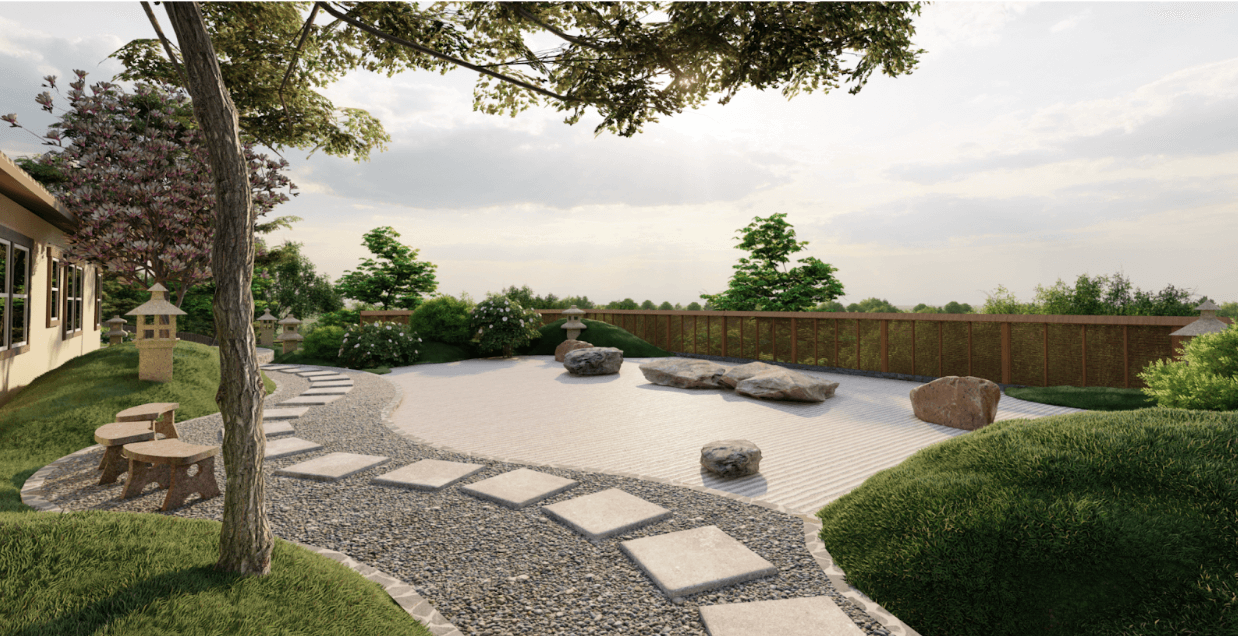
Conclusion
In the tranquility of a Zen garden, amidst carefully placed rocks, soothing gravel, and delicate foliage, lies a profound invitation to find solace and serenity in our own yards. As we’ve explored the rich history and design principles of these timeless spaces, it’s clear that they offer more than just aesthetic appeal—they provide a sanctuary for contemplation and mindfulness in our hectic lives.
At Yardzen, we understand the transformative power of Zen gardens, and we’re here to help you bring your vision to life. Whether you’re inspired by the asymmetry of Fukinsei, the calming presence of water features, the simplicity of design, or the reflective spaces for quiet introspection, our customizable design packages can turn your dream of a Zen garden into reality.
As you embark on this journey to cultivate tranquility in your yard, let the principles of Zen guide you—find beauty in imperfection, embrace simplicity, and cherish the connection with nature that these gardens offer. With Yardzen by your side, your Zen garden oasis awaits.
Featured Articles
2023 Outdoor Design Predictions
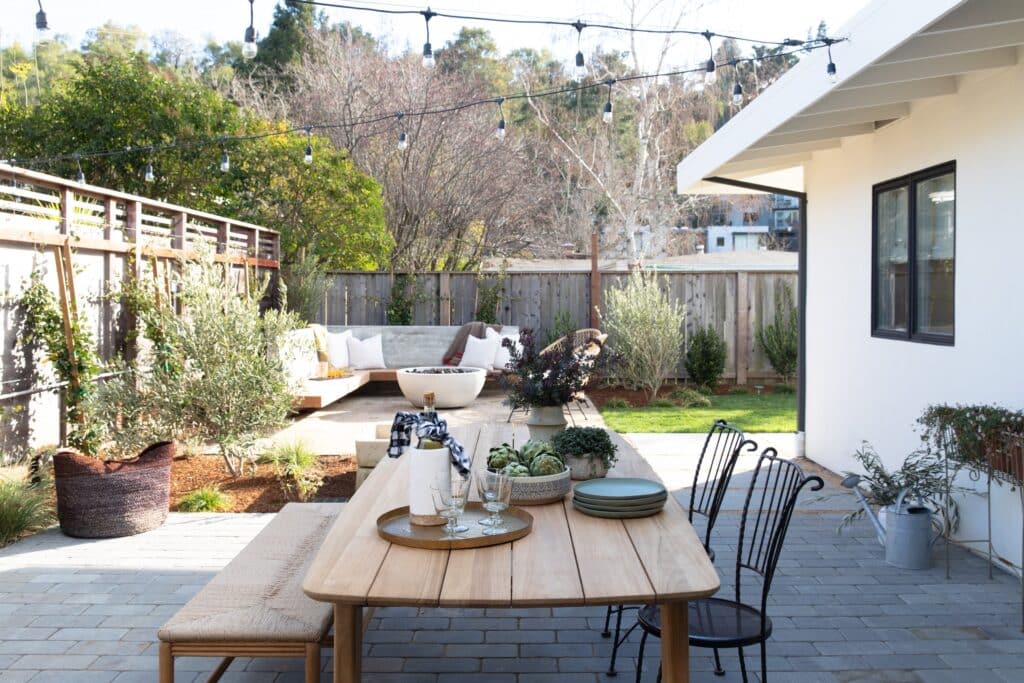
2024 Outdoor Living Predictions: Year of the Eclectic Yard
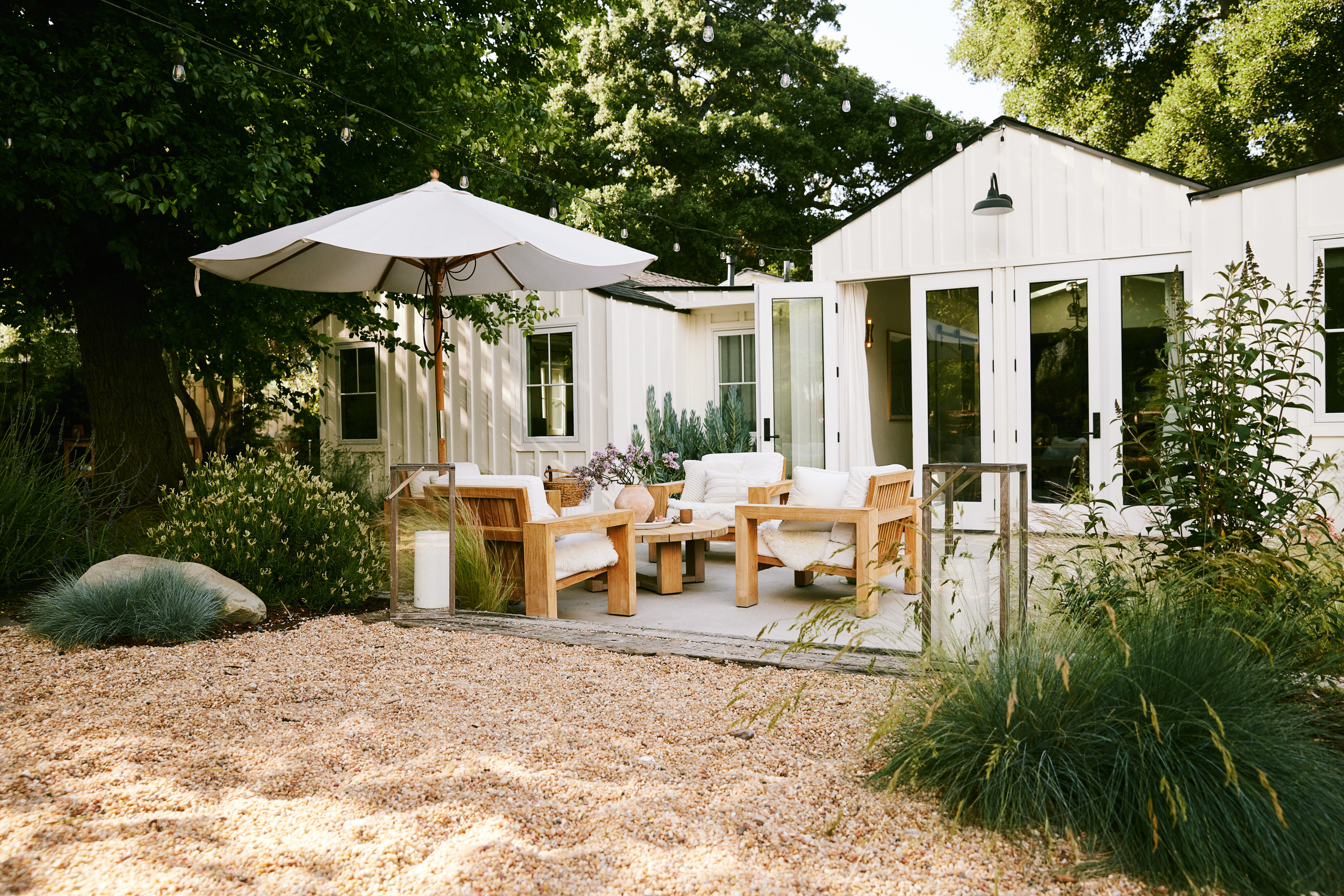
30+ Favorite Yardzen Yards of 2023
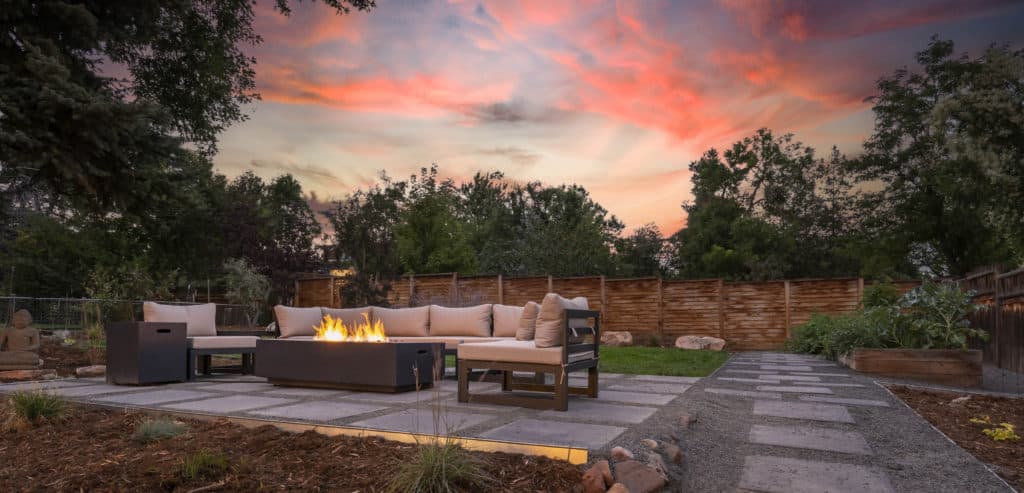
7 Of Our Favorite Yardzen Transformations of Summer 2023


